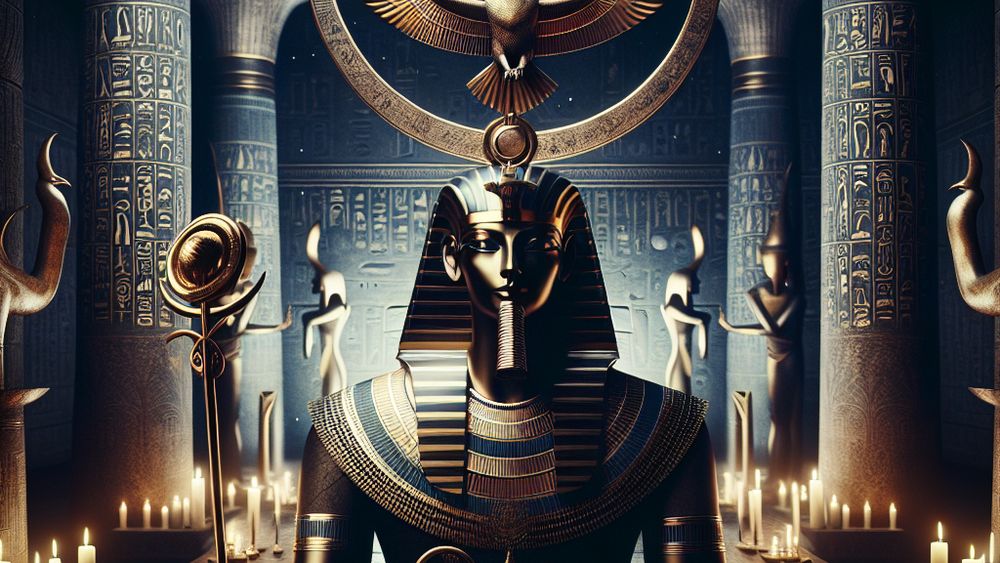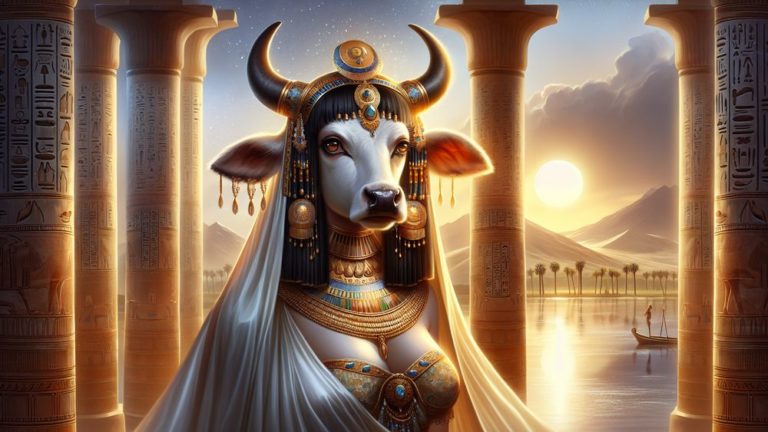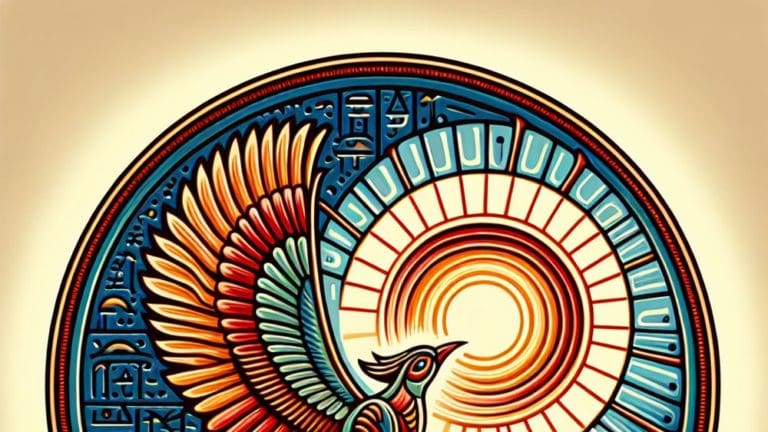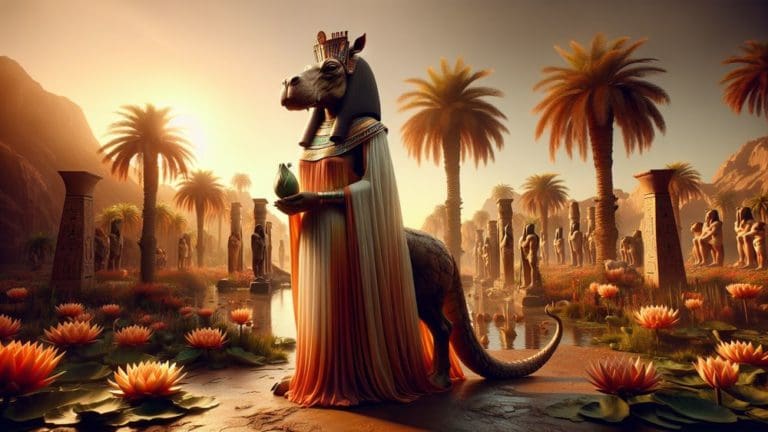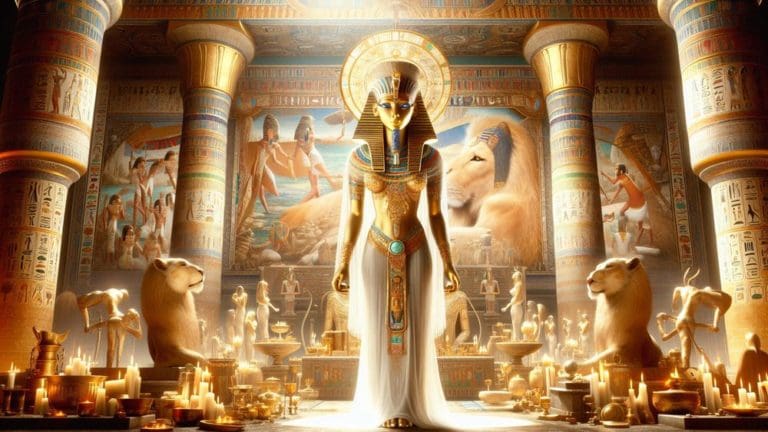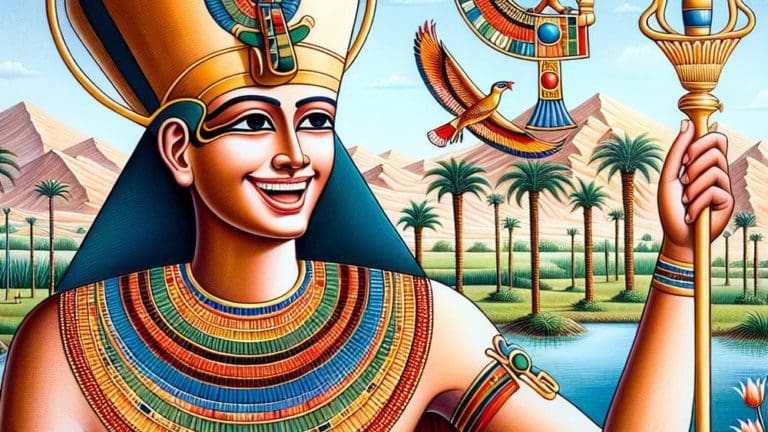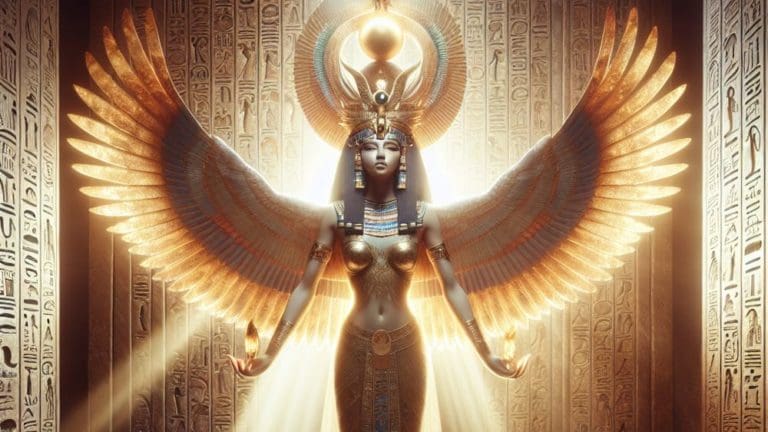Thoth The Egyptian God Of Wisdom: Unraveling Ancient Secrets
Thoth The Egyptian God Of Wisdom: Unraveling Ancient Secrets
Have you ever pondered the mysteries hidden within the ancient sands of Egypt? Imagine unearthing secrets that have been silent for millennia, especially those tied to Thoth the Egyptian god of wisdom. This deity, shrouded in mystery and allure, beckons us to explore the depths of ancient Egyptian thought, knowledge, and belief systems. His legacy is not just a story of divinity, but a testament to the sophistication and intelligence of a civilization that continues to captivate the world.
Key Points:
- Thoth is the Egyptian god of wisdom, magic, and writing.
- Thoth’s name means ‘He Who is Like the Ibis’, linked to wisdom and writing.
- Thoth is associated with the Moon, time, and recording events.
- Thoth played roles as a mediator, guide in the afterlife, and patron of scribes.
- Thoth’s symbols include the ibis and baboon, representing wisdom and order.
- Thoth’s legacy includes being the inventor of language and writing.
- Thoth’s influence extended to afterlife beliefs, judgment of the dead, and cosmic order.
Thoth, in his glory, stands as a pivotal figure whose domains include magic, writing, and wisdom – elements vital to the functioning and ideology of Egyptian society. Imagine walking through the hallways of time, where each hieroglyph penned by Thoth is a doorway to a world rich with knowledge and mystery. Isn’t it exhilarating to consider how our understanding of history, philosophy, and the cosmos could be transformed by unlocking the wisdom Thoth embodies?
But, who was Thoth? How did his influence permeate through the various aspects of Egyptian life and beyond? As we delve into the stories, symbols, and legacy of this magnificent god, let’s embark on a journey to uncover the layers of meaning and significance that Thoth contributes to our understanding of the ancient world. His story is not just an account of divine intervention but a testament to the timeless quest for knowledge, balance, and understanding that defines humanity’s journey through the ages.
The Origins of Thoth
At the heart of ancient Egyptian mythology lies the enigmatic figure of Thoth, a god whose origins are as fascinating as the wisdom he represents. Scholars and enthusiasts have long been intrigued by the emergence of this deity, whose presence is felt across various aspects of Egyptian culture and religion. Unraveling his origins offers us a glimpse into the early civilization’s worldview and the role deities played in shaping it.
Name and Origin
The name ‘Thoth’ itself is a window into the god’s multifaceted nature. Derived from the Egyptian word Djehuty, which means ‘He Who is Like the Ibis’, Thoth’s identity is closely linked to the ibis bird, a symbol of wisdom and writing in Egyptian culture. But Thoth’s origin story goes beyond his name, suggesting a birth from the lips of Ra, the sun god, granting him attributes of divinity, knowledge, and the authority to arbitrate among gods.

Moreover, Thoth’s emergence as a deity of wisdom, initially worshiped in the prehistoric era, reflects the Egyptian’s reverence for knowledge and the power of the written word. They believed Thoth to be the inventor of language and writing, attributes that underscored the significance of communication and record-keeping in establishing order and harmony within society. His association with the Moon, further attributing to him the control over time and the recording of events, marks Thoth as a central figure in the pantheon, bridging the divine with the mortal realms.
Thoth embodies wisdom, knowledge, and communication, symbolizing the importance of language and record-keeping in maintaining order and harmony in society.
Thoth in Egyptian Mythology
Within the rich tapestry of Egyptian mythology, Thoth occupies a place of honor among the pantheon of gods and goddesses. His role as the gods’ scribe and arbitrator is exemplified in numerous myths, highlighting his intelligence and diplomatic skills. Thoth is often depicted intervening in divine disputes with wisdom and fairness, bringing order out of chaos, a principle dearly held in Egyptian culture, embodied in the concept of Ma’at.
An iconic moment in Egyptian lore is Thoth’s intervention in the feud between Horus and Set, where his wise counsel and skills in persuasion helped restore order to the divine and earthly realms. This story underscores Thoth’s irreplaceable role in maintaining the balance of the universe, embodying principles of truth, justice, and cosmic order. Through such narratives, Thoth is showcased not just as a deity of wisdom and writing but as a protector of the gods’ will and the harmony of the cosmos.
The Many Roles of Thoth
In exploring the multifaceted identity of Thoth, it becomes evident that his influence reaches far beyond the realm of wisdom and writing. Thoth was revered not just for his knowledge and intellect but also for his roles as a mediator among the gods, a guide to souls in the afterlife, and a patron of scribes. This diversity in roles underscores the Egyptians’ view of him as a linchpin in the maintenance of cosmic and social order.
Thoth and The Distant Goddess
The myth of the Distant Goddess narrates one of Thoth’s key roles in Egyptian mythology – as a negotiator and bearer of reconciliation. In this story, the eye of Ra, personified as a goddess, flees in anger, causing chaos and drought in her absence. Thoth, with his unmatched diplomatic skills and wisdom, is dispatched to persuade her to return, a task he accomplishes with finesse, thus restoring ma’at (order, balance, and justice) to the world.
His success in this myth not only highlights Thoth’s import in reinstating cosmic balance but also showcases his role as a healer of rifts among the gods. The journey to bring back the Distant Goddess serves as a metaphor for the restoration of sight, signifying the return of clarity, vision, and guidance – both literally and figuratively – to the people and the gods. Through this narrative, Thoth emerges as a god capable of healing rifts, not with might, but with the power of speech, persuasion, and intellect.
Thoth and the Written Word
The ancient Egyptians saw Thoth as the divine architect of language and writing – a gift that allowed them to record their history, laws, and sacred knowledge. As patron god of scribes, Thoth was invoked in schools and libraries, his image a constant presence reminding the people of the power and sanctity of the written word. This association underlines the symbiotic relationship between divine inspiration and human endeavor in the pursuit of knowledge and wisdom.
Thoth’s contribution to the written word also extended to the creation of sacred texts, such as the renowned Book of the Dead – a guide for the souls navigating the afterlife. His association with writing and magic was so profound that spells and incantations were considered doubly efficacious when written down. Thus, Thoth’s influence permeated not just the realm of knowledge and learning but also the essential Egyptian beliefs about death, the afterlife, and the power of words to transcend the mortal world.
Thoth’s influence on writing and knowledge underscored the sacred link between divine inspiration and human pursuit of wisdom.
Thoth in the Afterlife
In the mystical expanse of Egyptian mythology, Thoth, the Egyptian god of wisdom, held an indispensable role in the afterlife. Often depicted as the ultimate scribe and judge, he was believed to record and weigh the deeds of the dead. For those journeying into the afterlife, the favor of Thoth could mean the difference between chaos and order, demonstrating his profound association with ma’at – the ancient Egyptian concept of truth, balance, and cosmic order.
His knowledge and magic were not only instrumental in guiding souls but also in advising gods. In the famous Book of the Dead, a collection of spells and guidelines to navigate the afterlife, Thoth’s wisdom provides the deceased with the knowledge needed to overcome obstacles and achieve a peaceful afterlife. Thoth’s involvement here highlights the Egyptian belief in the power of wisdom and writing to influence one’s destiny beyond death.
Perhaps the most compelling evidence of Thoth’s central place in the afterlife comes from his role in the judgment of the dead. In this critical moment, Thoth documents the proceedings, ensuring that order prevails over chaos, substantiating his esteemed association with justice and equilibrium. This portrayal, steeped in magic, wisdom, and a deep respect for knowledge, encapsulates the multi-faceted role of Thoth as a deity critical not only to life on Earth but also in the journey beyond.
Symbols and Representations of Thoth
Throughout the ages, Thoth has been represented by an array of symbols and depictions, each unraveling a layer of mystery and providing insight into his divine roles. From the silent wisdom of the ibis to the strength found in the baboon, and extending to the iconic writing palette, Thoth’s symbols are as multifaceted as the deity himself. These representations beckon the curious mind to explore the depths of knowledge and magic that Thoth embodies, offering a visual narrative of his influence across Egyptian civilization and the divine world.

Thoth as the Ibis and Baboon
The ibis, with its long, curved beak, invokes images of Thoth as a scribe meticulously recording the thoughts and deeds of gods and humans. This bird, revered for its poised and calm demeanor, symbolizes wisdom and the measurement of time, reflecting Thoth’s roles as keeper of knowledge and regulator of the seasons and lunar cycles. The ibis thus serves as a powerful emblem of Thoth’s association with wisdom, writing, and the moon.
Conversely, the baboon, another form attributed to Thoth, represents a different aspect of his divine essence. These intelligent and social animals were thought to greet the sun each morning with raucous calls, mirroring Thoth’s role as the voice of reason and order in the chaotic world. Additionally, statues and amulets depicting Thoth as a baboon have been found throughout Egypt, signifying the deity’s protection and intellectual might as the god of wisdom.
Both the ibis and baboon reflect qualities indispensable to the perception of Thoth: intelligence, communication, and a deep connection with the natural cycles. They offer a glimpse into the complex nature of Thoth, intertwining aspects of the material world with the profound depths of knowledge and magic that he governs. These animal forms, diverse in their symbolism, collectively illustrate the multifaceted associations of Thoth within Egyptian myth.
The Caduceus and Writing Palette
The caduceus, a staff entwined by two serpents and often topped with wings, is today widely associated with medicine and healing. However, in the context of ancient Egyptian civilization, it was a symbol deeply connected to Thoth, denoting his sorcerous abilities and role as a mediator between the worlds of the living and the dead. While primarily linked with Greek tradition, the origins of the caduceus as a symbol of harmony, balance, and protection can be traced back to the magical practices and rituals presided over by Thoth, showcasing his influence on cultures beyond Egypt.
Of equal significance is the writing palette, a tool emblematic of Thoth’s patronage over scribes and the written word. This object, often depicted in images and statues of the god, underscores his domain over wisdom, knowledge, and the meticulous craft of writing. The palette not only served a practical purpose in the daily lives of Egyptian people, embodying the physical act of writing, but it also symbolized the deity’s profound connection to language, record-keeping, and the transmission of knowledge. Through the writing palette, Thoth’s essence as the god of wisdom permeates the physical and intellectual realms, affirming his place as the forefather of scholars, scribes, and seekers of truth.
The caduceus and writing palette symbolize Thoth’s influence on wisdom, knowledge, and the transmission of knowledge across cultures.
Worship and Legacy
The worship of Thoth and the enduring legacy he left behind are testaments to the impact that a single deity can have on an entire civilization – and indeed, on the world. Across temples, in literature, and through the daily practices of ancient Egyptians, Thoth was revered not just as a god but as the embodiment of wisdom, knowledge, and order. This deep reverence has ensured that his influence extends far beyond the banks of the Nile, resonating through eras and cultures, leaving a mark that is both profound and lasting.
Worship of Thoth
The worship of Thoth took many forms, spanning simple offerings by the people of Egypt to elaborate ceremonies conducted in magnificent temples. Central to his cult were the rituals that celebrated his association with the moon, acknowledging his role as a regulator of time and the lunar cycle. Scribes and scholars held Thoth in particularly high esteem, paying homage through the daily act of writing, viewing it as a sacred practice directly connected to the deity’s wisdom.
Temples dedicated to Thoth, such as the one at Hermopolis, were centers of learning and knowledge, attracting devotees from across Egypt. Here, rituals and offerings were made to invoke Thoth’s blessings for wisdom, justice, and magical protection. Annual festivals, notably the Feast of Thoth, saw scribes and scholars gather to honor the god of wisdom with night-long vigils, prayers, and the copying of sacred texts, a dedication that underscored their deep respect and devotion.
In these practices and rituals, the qualities of Thoth – balance, knowledge, magic, and justice – were not only worshiped but actively woven into the fabric of Egyptian society. By honoring Thoth, the Egyptians paid homage to wisdom itself, ensuring his legacy would endure as a pillar of their civilization and a beacon for those who, across the generations, continue to seek knowledge and understanding.
Thoth’s Influence on Egyptian Culture and Beyond
Thoth’s impact on Egyptian culture is immeasurable, deeply entwined with the development of writing, science, and the judicial system. As the patron god of scribes, he was fundamentally linked to the inception of hieroglyphics, the Egyptian writing system that allowed the civilization to document its history, law, and literature. This connection to writing and knowledge facilitated the accumulation and transmission of wisdom across generations, laying the foundation for a rich tradition of scholarship and learning.
Beyond the domain of writing, Thoth’s legacy is reflected in the principles of ma’at, encapsulating truth, justice, and cosmic order – values that were central to the functioning of Egyptian society and its moral compass. His wisdom permeated every aspect of life, from the courtrooms, where oaths were sworn in his name, to the libraries and schools, where his teachings inspired seekers of knowledge. This profound influence transcends time and geography, echoing in the modern world through the continuing study of Egyptian mythology, philosophy, and magic.
FAQs
1. How was Thoth worshipped in ancient Egypt?
In ancient Egypt, Thoth was worshipped as the god of wisdom, writing, and magic. Devotees would offer prayers, inscriptions, and participate in rituals at temples dedicated to him, most notably in the city of Hermopolis. His association with writing and scribes meant that academics and writers held him in high esteem, often invoking his blessings for skills in writing and knowledge.
2. What is the significance of Thoth’s animal forms?
The significance of Thoth’s animal forms lies in their symbolic association with attributes he governed. The ibis, with its sharp beak, was thought to symbolize the preciseness required in writing, while the baboon, often depicted adoring the moon, alluded to Thoth’s role as the moon god, measuring time and seasons. These forms underscored Thoth’s vast domains of influence in the natural and divine worlds.
3. How did Thoth contribute to the afterlife beliefs of the Egyptians?
Thoth’s contribution to the afterlife beliefs of the Egyptians was monumental, serving as a mediator between the worlds of the living and the dead. He was believed to record the deeds of the deceased and assist in the Judgment of Osiris, where the heart of the dead was weighed against the feather of Ma’at to determine their fate in the afterlife. His role underscored the Egyptian conviction that wisdom and moral integrity were paramount for eternal peace.
4. What legacy did Thoth leave in ancient Egyptian history?
The legacy that Thoth left in ancient Egyptian history is profound and enduring. As the patron god of scribes and the inventor of writing, his influence permeated all aspects of Egyptian civilization, from religious rituals to the very fabric of daily life. His figure, symbolizing wisdom, knowledge, and magic, echoes throughout Egyptian art, literature, and culture, shaping the civilization’s worldview and its perception of the universe’s order.
Conclusion
Diving into the enigmatic world of Thoth, the Egyptian god of wisdom, has been an exhilarating journey through the corridors of time, where each turn revealed a new facet of this deity’s immense contribution to Egyptian civilization. From the hallowed halls of ancient temples to the mystical rites that celebrated his divine wisdom, the legacy of Thoth illuminates the depths of human pursuit for knowledge and understanding, a quest that remains just as relevant today.
Reflecting on Thoth the Egyptian god of wisdom, we find not only a symbol of ancient lore but a beacon that continues to inspire seekers, scholars, and enthusiasts around the world. His story encourages us to look beyond the surface, to explore the hidden meanings and mysteries that the past holds, reminding us of the power of wisdom to shape the course of civilizations.
As we close this chapter, let us carry forward the spirit of inquiry and reverence for the ancient worlds that have so much to teach us. I invite you to join me in this endless exploration, to uncover more mysteries, to learn, and to grow. Until we meet again in the realms of history and myth, stay curious, stay inspired. Goodbye, and may the wisdom of Thoth guide you on your journey.
Cedric

